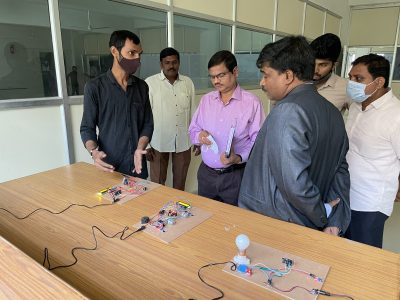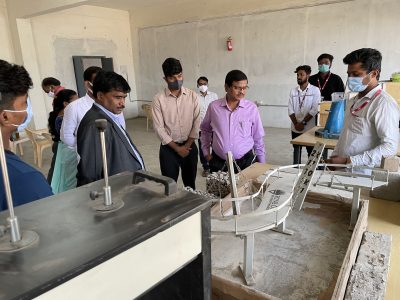
As the Principal of Ellenki Engineering College and Technology, I have had the privilege of
witnessing the evolution of engineering education firsthand. With a commitment to academic
excellence and innovation, Ellenki Engineering College stands at the forefront of shaping future
engineers. In this article, I am excited to share my perspective on engineering education at
Ellenki, highlighting key principles, challenges, and opportunities that define our approach to
nurturing the next generation of engineering professionals.
At Ellenki, we believe in creating a culture of innovation that encourages students to think
critically, creatively, and collaboratively. Our curriculum is designed to blend theoretical
knowledge with practical application, providing students with hands-on experience and real 
 world problem-solving skills. Through project-based learning initiatives, internships, and
world problem-solving skills. Through project-based learning initiatives, internships, and
industry partnerships, we strive to instill in our students the ability to innovate and adapt to the
rapidly evolving technological landscape.
Engineering education extends beyond technical skills; it encompasses a holistic approach that
addresses the social, ethical, and environmental implications of technology. At Ellenki, we
emphasize the importance of ethical conduct, social responsibility, and environmental
sustainability in engineering practice. Our students are encouraged to engage in community
service projects, participate in debates on ethical dilemmas, and explore the intersection of
technology and society through interdisciplinary coursework.
One of the cornerstones of our approach to engineering education is student-centered learning.
We recognize that every student has unique strengths, interests, and learning styles, and we
strive to create a supportive and inclusive learning environment that caters to diverse needs.
Through personalized mentoring, interactive lectures, and experiential learning opportunities,
we empower students to take ownership of their learning journey and pursue their passions
within the field of engineering.
While engineering education has made significant strides in recent years, it also faces its share
of challenges. Rapid technological advancements, changing industry demands, and
globalization present ongoing challenges that require adaptation and innovation in our
educational approach. However, these challenges also present opportunities for creativity,
collaboration, and continuous improvement. By embracing emerging technologies, fostering
interdisciplinary collaboration, and nurturing a culture of lifelong learning, we can prepare our
students to thrive in an ever-changing world.


